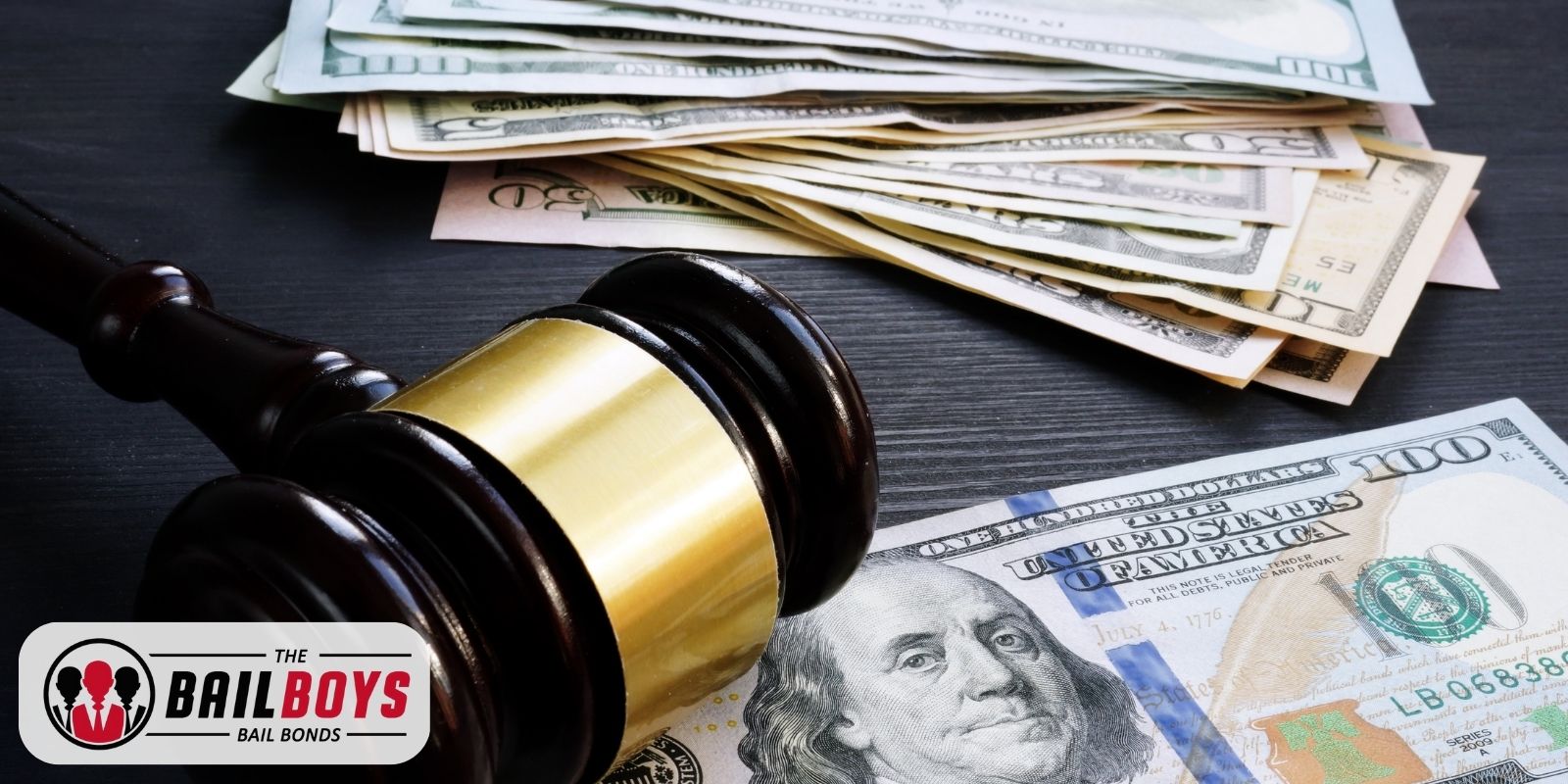How do Bail Bondsmen Make Money?
In the United States, bail bonds are a typical component of the criminal justice system. It is possible for someone who has been detained and charged with a crime to be released from custody before to trial by posting bail. Bail is a sum of money used to ensure that the defendant will appear in court on the scheduled day. The defendant forfeits their bail and an arrest warrant is issued if they don’t show up for court.
Not everyone can afford to pay the full amount of their bail upfront, which is where bail bondsmen come in. A bail bondsman, or bail agent, is a person or company that provides a defendant with a surety bond, which is a type of insurance policy that guarantees the defendant’s appearance in court. In exchange for this service, the defendant pays the bondsman a non-refundable fee, usually 10% of the total bail amount.
But how do bail bondsmen make money? In this article, we’ll take a closer look at the bail bonds industry and explore the various ways that bondsmen profit from their services. From fees and collateral to marketing and competition, we’ll examine the factors that contribute to the financial success of bail bondsmen.
The Role of Bail Bondsmen in the Bail Bonds Process
When a defendant is unable to pay their bail in full, a bail bondsman can help them obtain a surety bond. A surety bond is essentially a contract between the bondsman, the defendant, and the court. The bondsman agrees to pay the full bail amount if the defendant fails to show up for their court date, and the defendant agrees to pay the bondsman a non-refundable fee for their services.
The role of the bail bondsman is crucial in the bail bonds process. Without bondsmen, many defendants would be unable to secure their release from jail before their trial. Bondsmen are often available 24/7, which means that defendants can obtain their services at any time of the day or night. This can be especially important in cases where a defendant is arrested outside of normal business hours, such as on weekends or holidays.
Once a defendant has secured a surety bond through a bail bondsman, they are released from jail and are free to go about their daily life while they await their court date. However, the defendant is still obligated to appear in court on the specified date and time. If they fail to do so, the bondsman is responsible for paying the full bail amount to the court.
In order to mitigate the risk of having to pay the full bail amount, many bail bondsmen will take steps to ensure that their clients show up for court. This may include regular check-ins with the defendant, working with a third-party tracking service, or requiring the defendant to provide collateral as a form of security. By taking these precautions, bondsmen can protect their investment and minimize their losses in the event that a client fails to appear in court.
The Fees Charged by Bail Bondsmen
So, how do bail bondsmen make money?
One of the primary ways that bail bondsmen make money is by charging fees for their services. In most cases, the fee charged by a bail bondsman is 10% of the total bail amount. For example, if a defendant’s bail is set at $10,000, they would need to pay a bail bondsman $1,000 in order to obtain a surety bond and be released from jail.
The fee charged by a bail bondsman is non-refundable, which means that even if the defendant is found not guilty or the charges are dropped, they will not receive a refund of the fee paid to the bondsman. This fee is the primary source of income for bail bondsmen, and it is how they are able to stay in business.
While the 10% fee charged by bail bondsmen is the industry standard, some bondsmen may charge a higher or lower fee depending on the circumstances. For example, a bondsman may charge a higher fee if the defendant has a high risk of fleeing or if they are charged with a particularly serious crime. Conversely, a bondsman may charge a lower fee if the defendant has a low risk of flight and is charged with a less serious crime.
It’s important to note that the fee charged by a bail bondsman is separate from the bail amount itself. The bail amount is set by the court and is based on the severity of the crime, the defendant’s criminal history, and other factors. The fee charged by the bail bondsman is their fee for providing a surety bond and assuming the risk of paying the full bail amount if the defendant fails to appear in court.
In some cases, a defendant may not be able to pay the full fee upfront. In these cases, the bondsman may allow the defendant to make payments over time or may require collateral as a form of security. Collateral may include things like real estate, vehicles, or other valuable assets that the bondsman can seize if the defendant fails to appear in court.
The Risks and Rewards of Being a Bail Bondsman
While bail bondsmen can make a good living charging fees for their services, there are also significant risks involved in the business. One of the biggest risks is the possibility of a client failing to appear in court. If a client skips bail, the bondsman is responsible for paying the full bail amount to the court. This can be a substantial financial loss, especially if the bail amount is high.
To mitigate this risk, many bail bondsmen take steps to ensure that their clients show up for court. This may include regular check-ins, working with a third-party tracking service, or requiring collateral as a form of security. By taking these precautions, bondsmen can minimize their losses in the event that a client fails to appear in court.
Despite the risks involved, many bail bondsmen find the work to be rewarding. They are able to help defendants who might otherwise be stuck in jail before their trial, and they play a crucial role in the criminal justice system. Bondsmen also have the potential to make a good living, especially in areas with high crime rates or large populations.
In addition to the financial rewards, bail bondsmen may also find the work to be intellectually stimulating. They must be knowledgeable about the criminal justice system, including bail laws and court procedures. They must also be skilled at evaluating risk and determining which clients are good candidates for bail.
Overall, being a bail bondsman can be a challenging and rewarding profession. While there are risks involved, the potential for financial and personal rewards make it an attractive career option for those with the necessary skills and temperament.
The Future of the Bail Bond Industry
The bail bond industry has been around for centuries, but it has faced increased scrutiny in recent years. Critics argue that the industry unfairly targets low-income individuals who are unable to pay the fees charged by bondsmen. They also argue that the industry creates incentives for bondsmen to keep defendants in the criminal justice system, rather than working to address the underlying causes of crime.
As a result of these criticisms, some states have begun to reform their bail systems. For example, California recently passed a law that eliminates cash bail and replaces it with a system based on risk assessment. Under this system, judges will evaluate a defendant’s risk of flight and danger to society and set bail accordingly. Proponents of this system argue that it will be more fair and equitable than the traditional cash bail system.
It’s unclear how these reforms will impact the bail bond industry in the long term. Some bondsmen may pivot to other areas of the criminal justice system, such as providing pre-trial services or working with defendants who are not eligible for bail. Others may choose to fight the reforms, arguing that they will hurt their ability to make a living and provide a valuable service to the community.
Regardless of what happens, it’s clear that the bail bond industry will continue to play an important role in the criminal justice system for the foreseeable future. As long as people are being arrested and charged with crimes, there will be a need for bail bondsmen to help them navigate the system and obtain their freedom before their trial. Whether the industry will continue to thrive in its current form or evolve in response to changing attitudes and policies remains to be seen.
Conclusion: Understanding the Business of Bail Bonds
Bail bondsmen play a crucial role in the criminal justice system, providing defendants with a way to obtain their freedom before their trial. While the business of bail bonds can be profitable, it also carries significant risks, particularly in cases where clients fail to appear in court.
To mitigate these risks, bondsmen must be skilled at evaluating risk and determining which clients are good candidates for bail. They must also be knowledgeable about the criminal justice system, including bail laws and court procedures. By taking these precautions, bondsmen can help ensure that their clients show up for court and minimize their losses in the event that a client skips bail.
Looking to the future, the bail bond industry is facing increased scrutiny and potential reforms. While it’s unclear how these changes will impact the industry in the long term, it’s clear that there will continue to be a need for bail bondsmen to help defendants navigate the criminal justice system and obtain their freedom before their trial.
Whether you’re a defendant in need of a bail bond or a potential bail bondsman looking to enter the industry, it’s important to have a clear understanding of how the business of bail bonds works. By understanding the risks and rewards involved, you can make informed decisions and ensure the best possible outcome for your situation.







